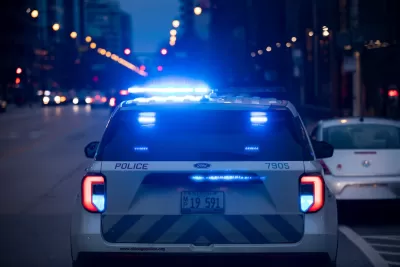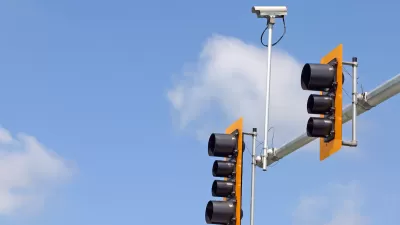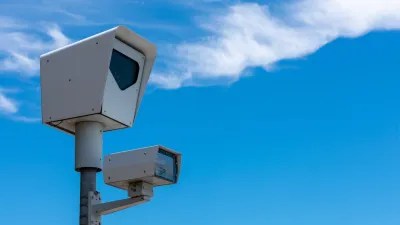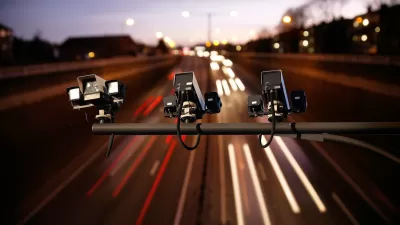The city’s automated traffic enforcement cameras are issuing tickets at rates more aligned with the community’s racial makeup — unlike human police officers, according to a new analysis.

A study of Chicago’s controversial speed cameras indicates that they issue citations more equitably than human police officers. “Cameras can detect dangerous moving violations, such as serious speeding and running red lights, without the need for immediate police involvement. Automated enforcement alone won’t guarantee safe streets, but cameras have reduced fatal and serious injury crashes substantially where deployed, including in Chicago.”
Research by Wenfei Xu, David Levinson, Michael J. Smart, and Nebiyou Yonas Tilahun reveals that “when speed cameras are doing the ticketing, the proportion of tickets issued to Black and white drivers aligns closely with their respective share of roadway users. With human enforcement, in contrast, police officers stop Black drivers at a rate that far outstrips their presence on the road.” In areas of Chicago where half of drivers are Black, they account for 70 percent of police stops.
Using automated traffic enforcement can be one step toward more equitable policing. In Illinois, lawmakers are proposing to ban traffic stops “solely based on noncriminal and minor offenses such as improper vehicle registration, seat belt violations or lane usage mistakes,” while Berkeley is considering the use of trained civilians for routine traffic enforcement — similar to parking enforcement in most cities — to reduce the risk of interactions with armed law enforcement.
FULL STORY: Police stop more Black drivers, while speed cameras issue unbiased tickets − new study from Chicago

Alabama: Trump Terminates Settlements for Black Communities Harmed By Raw Sewage
Trump deemed the landmark civil rights agreement “illegal DEI and environmental justice policy.”

Study: Maui’s Plan to Convert Vacation Rentals to Long-Term Housing Could Cause Nearly $1 Billion Economic Loss
The plan would reduce visitor accommodation by 25% resulting in 1,900 jobs lost.

Planetizen Federal Action Tracker
A weekly monitor of how Trump’s orders and actions are impacting planners and planning in America.

Waymo Gets Permission to Map SF’s Market Street
If allowed to operate on the traffic-restricted street, Waymo’s autonomous taxis would have a leg up over ride-hailing competitors — and counter the city’s efforts to grow bike and pedestrian on the thoroughfare.

Parklet Symposium Highlights the Success of Shared Spaces
Parklets got a boost during the Covid-19 pandemic, when the concept was translated to outdoor dining programs that offered restaurants a lifeline during the shutdown.

Federal Homelessness Agency Places Entire Staff on Leave
The U.S. Interagency Council on Homelessness is the only federal agency dedicated to preventing and ending homelessness.
Urban Design for Planners 1: Software Tools
This six-course series explores essential urban design concepts using open source software and equips planners with the tools they need to participate fully in the urban design process.
Planning for Universal Design
Learn the tools for implementing Universal Design in planning regulations.
Caltrans
Smith Gee Studio
Institute for Housing and Urban Development Studies (IHS)
City of Grandview
Harvard GSD Executive Education
Toledo-Lucas County Plan Commissions
Salt Lake City
NYU Wagner Graduate School of Public Service





























